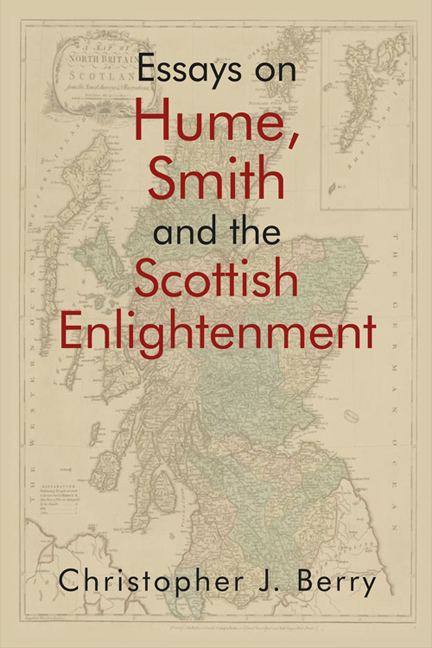12 - Hume’s Universalism: The Science of Man and the Anthropological Point of View
Published online by Cambridge University Press: 06 May 2021
Summary
My focus in this chapter is Hume's advertised attempt to establish foundationally a science of man. Though it is not his sole motivation, central to this effort is his intention to undermine the credibility of superstitious, supernatural accounts of what makes humans and their social life function. My argument is that attempts to downplay Hume's universalism and, in virtue of his recognition of diversity, to identify him as subscribing to some form of historicism or relativism, are mistaken or at best fail to apprehend the centrality of his assault on unscientific accounts of human nature.
I divide the argument into five sections. In the first I outline, chiefly via a brief exposition of the work of Clifford Geertz as its representative, what I will call the anthropological point of view. It is such a view, I contend, that is imputed to Hume by those commentators who identify him as a (sort of) historicist or relativist. My aim here is not to analyse Geertz's position but to employ it in order to throw into relief the interpretation of those Humean commentators with whom I am taking issue. The second section gives an exposition of Hume's universalism, while the third outlines his account of the process of socialisation as the strongest evidence of his supposed principled acceptance of the non-universality of behaviour/values/manners. In section IV I elaborate a Humean account to illustrate how he is able to accommodate a recognition of diversity while still sustaining his commitment to universalism. In the final section I distinguish Hume's position from the anthropological on two fronts – the first stresses how the decisive variable in Hume's account of historical change is institutional, not human nature, and the second indicates (no more) how Hume's universalism functions evaluatively, with the consequent implication that not all ways of living are on a normative par.
Underlying the subscription to Hume of historicism or relativism, or what sustains it at an unexplicated level, is a pervasive understanding of ‘culture’, especially as expressed in (cultural) anthropology. Using the work of Clifford Geertz, I aim to illuminate this understanding and thereby the interpretation put forward by (among others) Livingston (1988), Capaldi (1978) and Schmidt (2003) (for further examples, see n.5).
- Type
- Chapter
- Information
- Essays on Hume, Smith and the Scottish Enlightenment , pp. 208 - 225Publisher: Edinburgh University PressPrint publication year: 2018



